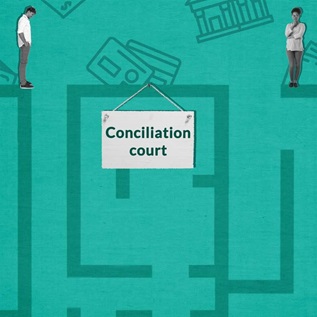Pew Report Finds Credit Cards More Transparent, Yet Problems Remain
Washington, D.C. — Most of the practices deemed “unfair” or “deceptive” by the Federal Reserve have disappeared from new credit card offers since federal passage of the Credit CARD Act last year, according to a new report by the Pew Health Group's Safe Credit Cards Project. Yet new trends have emerged that could cost cardholders significantly.
The report finds that issuers have eliminated practices such as “hair trigger” penalty rate increases (disproportionate charges for minor account violations), unfair payment allocation, and raising interest rates on existing balances. However, Pew's research also highlights a sharp rise in cash advance fees, continued widespread use of other penalty interest rates and an emerging trend of credit card companies failing to disclose penalty interest rates in their online terms and conditions.
“While it's been less than a year since passage of the Credit CARD Act, the new law appears to be working for millions of Americans who have credit cards,” said Shelley A. Hearne, managing director of the Pew Health Group. “The elimination of most of the ‘unfair' or ‘deceptive' practices of the credit industry since we last surveyed the marketplace marks a major milestone in the move to make credit cards safer, transparent and more fair for consumers. Most of the news is good, but we are seeing the rise of new harmful behavior.”
The study, Two Steps Forward: After the Credit CARD Act, Cards Are Safer and More Transparent—But Challenges Remain (PDF) is the latest in a series of reports from the Pew Safe Credit Cards Project that has examined all consumer credit cards offered online by the nation's 12 largest banks and 12 largest credit unions. Together these institutions control more than 90 percent of the nation's outstanding credit card debt. For this latest report, which measures how the industry has changed since the passage of the Credit CARD Act, Pew gathered data in March 2010 on nearly 450 cards. Full details, including previous research, can be found at www.pewtrusts.org/creditcards.
Key findings show:
- Many of the most troublesome practices of the credit card industry have been eliminated. A credit card issuer can no longer unilaterally decide to raise interest rates on existing balances. Likewise, practices including “hair trigger” penalty rate increases, unfair payment allocation, and overlimit fees without prior consent are a thing of the past. Earlier Pew research found that before the implementation of the law, 100 percent of the credit cards surveyed included at least one of these practices.
- Beyond the requirements of the new law, there are new practices that benefit consumers. Less than 25 percent of all cards examined had an overlimit fee, which is down from more than 80 percent of cards in July 2009. Additionally, mandatory arbitration clauses, which can limit a consumer's right to settle disputes in court, are now found in 10 percent of cards compared to 68 percent in July 2009.
- Predictions that legislation would spawn the growth of new fees have yet to materialize. There was minimal change in the number of cards that include an annual fee (down 1 percentage point from July 2009 to March 2010). During that period, the median size of these fees increased from $50 to $59 for banks and from $15 to $25 for credit unions.
- Some disclosures stopped including the size of penalty interest rates even as issuers reserved the right to impose them. At least 94 percent of bank cards and 46 percent of credit union cards came with interest rates that could go up as a penalty for late payments or other violations. But nearly half these warnings failed to inform the consumer of the actual penalty interest rate or how high it could climb.
“Although we applaud changes by the card industry to create a fairer and more transparent marketplace, our research shows that some challenges remain,” said Nick Bourke, director of Pew's Safe Credit Cards Project and report co-author. “For the first time, we have seen credit card disclosures warning consumers that interest rates could go up as a penalty for certain actions, but not stating how high those rates could go. Federal regulators should pay attention to this problematic new trend. When issuers withhold vital pricing information, it leaves cardholders in the dark and puts their financial security at risk, which is why federal regulations have long required issuers to disclose their rates and fees up front.”
Two Steps Forward includes a number of policy recommendations to address new challenges, including:
- Federal bank regulators should enforce existing regulations that require companies to disclose full and reliable credit card penalty rate information.
- The Federal Reserve should prohibit issuers from charging penalty interest rates that are higher than initially disclosed when the consumer opened the card account.
The report also shows that surcharge fees for cash advances rose sharply between July 2009 and March 2010. Bank cash advance and balance transfer fees increased on average by one-third during this period, from 3 percent of each transaction to 4 percent. Credit union cash advance fees went up by one quarter, from 2 percent to 2.5 percent.
Other pricing data is also included in the report, showing recent increases in a variety of credit card interest rates and fees.











